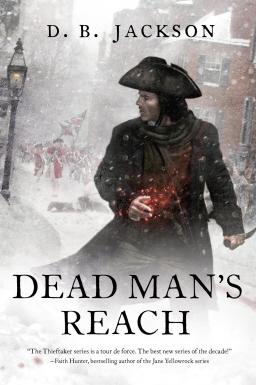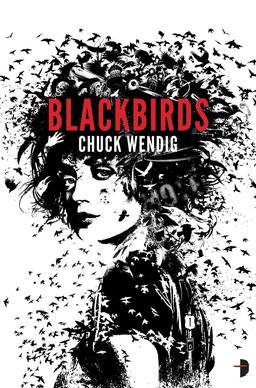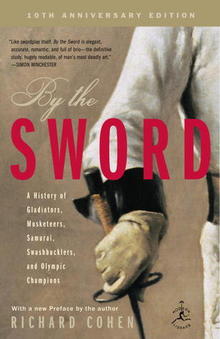 For weeks now, I have debated back and forth about this post, and even as I write it and contemplate submitting it to Black Gate, I remain ambivalent about whether or not I should. I have kept silent throughout the spring and summer, watching as the genre I love tears itself apart, and I haven’t known what to do. I still don’t.
For weeks now, I have debated back and forth about this post, and even as I write it and contemplate submitting it to Black Gate, I remain ambivalent about whether or not I should. I have kept silent throughout the spring and summer, watching as the genre I love tears itself apart, and I haven’t known what to do. I still don’t.
I have two original, novel-length releases coming this summer. Dead Man’s Reach, due out on July 21, is the fourth book in my Thieftaker Chronicles, a historical urban fantasy series I write for Tor Books under the name D.B. Jackson. His Father’s Eyes, which drops on August 4, is the second book in The Case Files of Justis Fearsson, a contemporary urban fantasy that I write for Baen Books under my own name, David B. Coe.
Put another way, I have two books coming out this summer from different publishers, in different series, under different names. And, I should add, I’m thrilled by this. As any author writing these days knows, busy is good; I’m happy to say that I’m as busy as I’ve ever been.
But I am writing for Tor and Baen, the two houses at the center of the Sad/Rabid Puppy controversy that has ravaged science fiction and fantasy over the past several months. I knew going in to my contract with Baen (the most recent book contract I’ve signed) that I might be putting myself in an awkward position. I’ve been writing for Tor for nearly twenty years, covering four series and a total of sixteen novels. I’m new to Baen, but have known the editors there for years, and was delighted when presented with the chance to work with them. I can speak to the strengths of both houses, and have done so recently.
Politically, I’m more in tune with the culture at Tor than the one at Baen. But in that regard I join a large group of wonderful, left-leaning writers who publish with Baen, including, among others, Eric Flint, Mercedes Lackey, and Steve Miller and Sharon Lee. The folks at Baen treat all of their writers well, and as long as we meet our deadlines, write good books, and promote the hell out of them, they don’t give a damn about our politics. Which is precisely as it should be. And Tor, which publishes John Wright as well as John Scalzi, does exactly the same.
…
Read More Read More
 Peer review or small group critiquing is one of the most common techniques authors use to improve their story drafts. Virtually every author I know has been a part of a critique group at one time or another. Some authors are strong proponents of the exercise, others are adamantly opposed to it. I suspect the primary factor in how authors feel about them is whether their early experiences were helpful, or not.
Peer review or small group critiquing is one of the most common techniques authors use to improve their story drafts. Virtually every author I know has been a part of a critique group at one time or another. Some authors are strong proponents of the exercise, others are adamantly opposed to it. I suspect the primary factor in how authors feel about them is whether their early experiences were helpful, or not.







